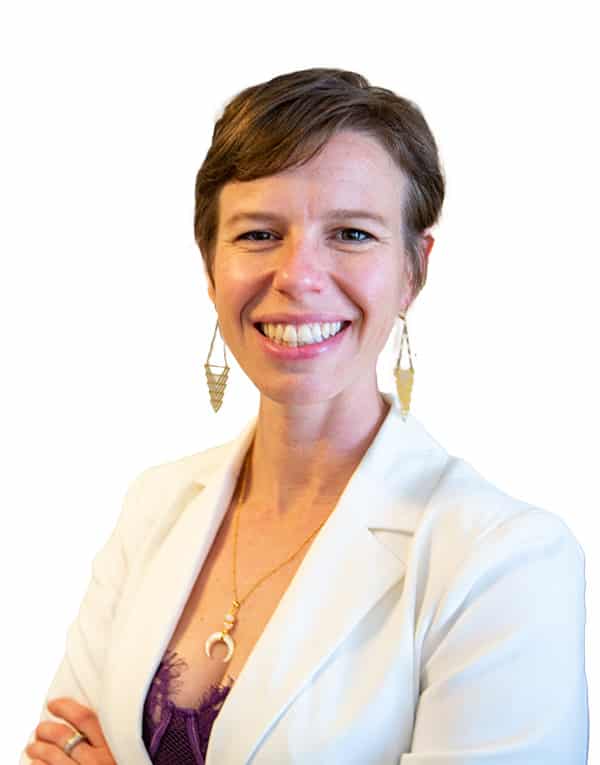We often say being born is our original trauma. We talk about how painful and scary it was to be in the comfort of the womb where we are more immersed in being than doing, and then ripped from our place of comfort to enter the world. We talk about how traumatic it was to be separated from our mothers. Sure, this is part of the experience too, but the real trauma, the real heartache is that it FEELS like we have been separated from God. Once immersed in Divine Unity, we are now experiencing ourselves as separate… and it feels… uncomfortable.
As humans, we have the job of constantly managing opposing views at one time. This is the nature of reality. This is the space of both/and. While it is true that we have been separated from God and are in a quest to discover our own sovereignty and actualize the self, we are at the same time still connected to Divine Unity, whole and safe. We ARE God, expanding, unfolding, and experiencing the expansiveness of possibility.
But it often doesn’t feel that way. When we were born, something felt different and the illusion of separation made a big impression on us. Think of it like when we go through a breakup and proclaim we will never date again. We go through life avoiding wholeness, so we won’t have to go through the feeling of being separated ever again. We don’t want to feel the pain of love, only the joys.
What we have come here to learn is how to be whole even in the heartbreak. To stand at the center of the storm and the stars, the tenderness and passion, our rage, our compassion and know that we are safe.
One of the practices of Buddhism is to gain mindfulness and understanding of our experience as humans. In doing so, it is not that we lose touch with our emotions, but that we are able to experience the emotion of pain or sadness without becoming lost in a feeling of suffering. Being able to stand in our center, storm or shine, and have the presence to take in everything around us, without getting lost, is part of the process of becoming fully human. In many ways, we are learning how to mimic God, both as individuated beings and knowing that we are never actually separate.
If you think about the last several centuries of history and mythology, a lot of our experience has to do with feeling cast out and separated. We look around our world and can’t help but see the disconnection to nature and lack of compassion for one another. On some level, we think of our original separation, and at least wonder if we are somehow being punished.
And why should I have what I desire if I am not good enough?
Why would I want to root in a world that isn’t good?
This is the story we are in the midst of shifting. It can be easy to slip into victim mode here and make all of our learnings society’s fault. We blame the community we grew up in, poverty, our violent family, and other races. Anything we don’t like about ourselves or our world we project onto others. Any time we have to feel discomfort, we squirm, run away, hide or dilute the experience. Keeping the “devil out” means all your fears are outside of you, they are external. The monster has been out there, getting bigger, scarier. It’s getting harder to even peek behind the curtains anymore. We’ve been trained to close the curtain and look away every time we come to the fear, to the discomfort, but we are evolving. We are returning to truth, the whole truth and we must remember that we signed up for this. We signed up to feel both sides of the coin.
We are actually moving from Suffering to Creation. We now know that in an effort to understand and experience the full spectrum of possibility, everything that happens “to us” is a product of our choosing.. Instead of being unconscious victims to ourselves, we now understand that we can make conscious choices; we are becoming creators.
God didn’t put you here because it wanted to punish you, it put you here because it wanted to see what you would create.
It wanted to watch you remember that you are whole.
This week, I have one task for you. In an effort to move through discomfort, may you also become mindful. Pay attention to when discomfort comes up for you. For instance, when you want to reveal something truthful to a friend but talk yourself out of it. Another example could be that you’ve been fantasizing about setting a boundary. Perhaps a friend keeps asking for a favor and you really want to say no, but you keep saying yes. Pay attention to moments like these. This week, I am not asking you to make any changes, but to let yourself become aware of the discomfort you are feeling and hold it for a little bit longer than you normally would before changing your mind. What we are doing is learning to recognize when discomfort is controlling our actions, instead of making conscious choices that we know, deep down, are right for us.


